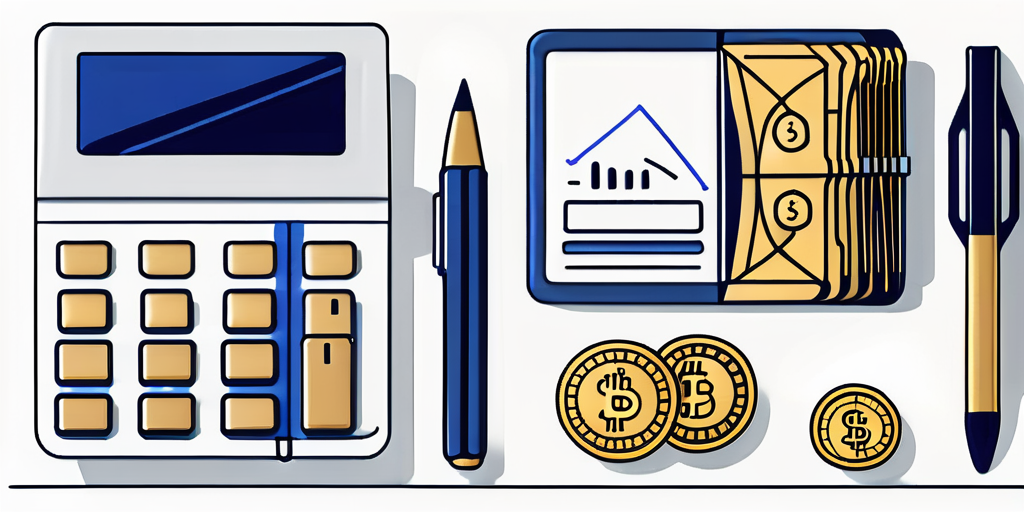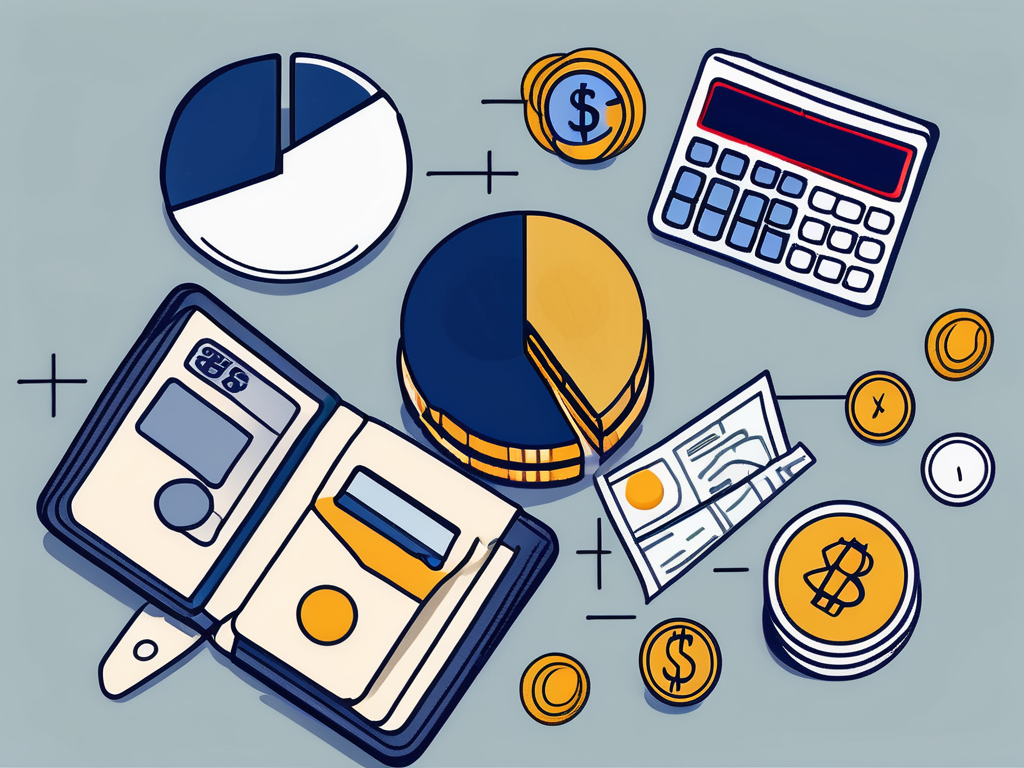Budgeting is a crucial skill that everyone should learn to effectively manage their finances. Whether you're just starting out or looking to improve your financial situation, creating and sticking to a budget can help you achieve your goals and lead a stress-free life. In this beginner's guide, we will walk you through the basics of budgeting, provide you with step-by-step instructions to create your first budget, share tips for successful budgeting, and help you overcome common budgeting challenges. So let's dive in and take control of your financial future!
Understanding the Basics of Budgeting
Before we delve into the nitty-gritty of budgeting, let's understand what budgeting actually means. At its core, budgeting is the process of creating a plan to manage your income and expenses. It allows you to allocate your money wisely, ensuring that you have enough to cover your essential needs, save for the future, and enjoy some discretionary spending.
What is Budgeting?
Budgeting is essentially a tool that helps you keep track of your money and make informed financial decisions. It involves setting financial goals, analyzing your income and expenses, and creating a plan to achieve those goals. By budgeting, you gain a clear understanding of how much money you have coming in, where it is going, and how you can optimize your spending.
Let's take a closer look at the different aspects of budgeting:
Setting Financial Goals: One of the first steps in budgeting is to define your financial goals. These goals can be short-term, such as saving for a vacation, or long-term, such as buying a house or retiring comfortably. By setting clear goals, you can align your budgeting efforts with your aspirations and work towards achieving them.
Income Analysis: Understanding your income is crucial for effective budgeting. This includes not only your regular salary or wages but also any additional sources of income, such as investments or side hustles. By knowing how much money you have coming in, you can plan your expenses accordingly.
Expense Analysis: Analyzing your expenses involves categorizing and tracking your spending. This allows you to identify areas where you may be overspending or areas where you can cut back. By scrutinizing your expenses, you can make more informed decisions about where to allocate your money.
Creating a Budget: Once you have a clear understanding of your financial goals, income, and expenses, it's time to create a budget. A budget is a detailed plan that outlines how you will allocate your money across different categories, such as housing, transportation, groceries, and entertainment. It helps you prioritize your spending and ensures that you have enough money for your essential needs while still allowing for savings and discretionary spending.
Why is Budgeting Important?
Now that we know what budgeting is, let's explore why it is so important. Budgeting allows you to take control of your money instead of letting it control you. It helps you prioritize your spending, save for emergencies and future goals, and avoid falling into the trap of living paycheck to paycheck. Moreover, budgeting helps you make better financial decisions, eliminates financial stress, and ultimately leads to a more secure and fulfilling life.
Here are some key benefits of budgeting:
Financial Stability: By creating a budget and sticking to it, you can achieve financial stability. This means having enough money to cover your essential needs, pay off debts, and save for the future. Budgeting helps you avoid unnecessary debt and ensures that you are prepared for unexpected expenses.
Goal Achievement: Budgeting allows you to set and achieve your financial goals. Whether it's buying a new car, going on a dream vacation, or saving for retirement, budgeting helps you allocate your money towards these goals. It provides a roadmap for your financial journey and keeps you on track.
Reduced Stress: Financial stress can take a toll on your overall well-being. By budgeting, you gain a sense of control over your finances, which can significantly reduce stress. Knowing that you have a plan in place and are working towards your goals brings peace of mind and allows you to focus on other aspects of your life.
Improved Decision Making: Budgeting forces you to evaluate your spending habits and make conscious decisions about your money. It helps you differentiate between needs and wants, and encourages you to make thoughtful choices. By analyzing your expenses, you can identify areas where you can cut back and make adjustments to align your spending with your values and priorities.
Key Terms in Budgeting
Before we proceed further, let's familiarize ourselves with some key terms you'll encounter while budgeting:
- Income: The amount of money you earn, whether through salary, wages, investments, or other sources.
- Expenses: The money you spend to cover your living costs, bills, and other necessities.
- Fixed Expenses: Regular expenses that remain relatively constant each month, such as rent or mortgage payments.
- Variable Expenses: Expenses that can vary from month to month, such as groceries, entertainment, and dining out.
- Savings: The money you set aside for future goals or emergencies.
- Debt: Money you owe to creditors, such as credit card debt or student loans.
Understanding these terms is essential for building a solid foundation in budgeting. They form the building blocks of your financial plan and help you navigate the complexities of managing your money effectively.
Steps to Create Your First Budget
Creating your first budget might seem overwhelming, but fear not! We will break it down into simple steps that anyone can follow.
Identifying Your Income and Expenses
The first step in budgeting is determining your income and expenses. Make a list of all your sources of income, including your salary, side gig earnings, and any passive income. Next, list down all your essential expenses, such as rent or mortgage payments, utility bills, groceries, transportation costs, and debt repayments. Be thorough and include everything, as it will give you an accurate picture of your financial situation.
Setting Your Financial Goals
Once you have a clear understanding of your income and expenses, it's time to set your financial goals. What are you aiming to achieve through budgeting? Do you want to pay off debt, save for a down payment on a house, or build an emergency fund? Setting specific, measurable, achievable, relevant, and time-bound (SMART) goals will help you stay motivated and focused throughout your budgeting journey.
Allocating Funds to Different Categories
With your goals in mind, it's time to allocate your funds to different categories. Start with your essential expenses, ensuring that you allocate enough money to cover your needs. Then, allocate funds for your financial goals, such as savings or debt repayments. Finally, set aside a portion of your income for discretionary spending. Remember, it's essential to strike a balance between enjoying your money and saving for the future.
Tips for Successful Budgeting
Now that you have created your budget, let's discuss some tips to ensure its success.

Prioritizing Needs Over Wants
When making spending decisions, always prioritize your needs over wants. Focus on essential expenses first, such as food, shelter, and healthcare. While it's important to enjoy life and indulge in occasional treats, understanding the difference between needs and wants is crucial for maintaining financial stability.
Making Room for Savings and Investments
One of the primary purposes of budgeting is to save for the future. Allocate a portion of your income towards savings or investments. Even small amounts can add up over time and provide you with financial security. Automating your savings can make it easier to stick to your goals and ensure that you consistently set aside money.
Regularly Reviewing and Adjusting Your Budget
Budgeting shouldn't be a one-time task. It's essential to regularly review your budget and make adjustments as needed. Life circumstances change, and your budget should reflect those changes. Monitoring your expenses, income fluctuations, and progress towards your goals will help you stay on track and make necessary adjustments along the way.
Overcoming Common Budgeting Challenges
While budgeting can be immensely beneficial, it's not always smooth sailing. Let's explore some common challenges and how to overcome them.

Dealing with Unexpected Expenses
Life is full of surprises, and unexpected expenses can throw our budgets off track. To prepare for such situations, it's crucial to include a buffer in your budget. Set aside a small amount each month for unforeseen expenses. Additionally, building an emergency fund can provide you with a financial safety net during challenging times.
Staying Motivated and Disciplined
Staying motivated and disciplined throughout your budgeting journey can be tough, especially when faced with temptations or setbacks. Remind yourself of your long-term goals and the benefits of sticking to your budget. Celebrate small wins along the way and surround yourself with like-minded individuals who can encourage and support you.
Handling Debt While Budgeting
If you're dealing with debt while budgeting, it's important to tackle it strategically. Identify your highest-interest debts and allocate extra funds towards their repayment. Consider consolidating your debts or negotiating lower interest rates to make the process more manageable. As you pay off your debts, you'll free up more funds to allocate towards your financial goals.
By following these essential tips and implementing a budget, you're well on your way to financial success. Remember, budgeting is a continuous process that requires dedication and perseverance. With time, practice, and the right mindset, you will gain control over your finances, achieve your goals, and secure a brighter future.
Ready to take your financial planning to the next level? Join Tiblio today and be part of a revolutionary movement in the capital markets. Our innovative platform is designed to give you direct, algorithmic control over your investments, integrating seamlessly with your existing brokerage accounts. No need to transfer funds; just connect and start experiencing the transformative shift Tiblio is leading. Empower yourself with the tools to make smarter, more informed investment decisions.
Don't just connect with the financial world—lead the charge. Join now and start shaping your financial future with Tiblio.
